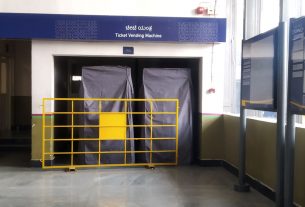Concession Aims to Introduce Electric Buses
By SA Gayatri
Bangalore, Jan. 24, 2019.
The National Institute of Transforming India (NITI) Aayog scheme has issued a model concession agreement for Public-Private Partnership (PPP) aimed at the operation and maintenance of electric buses in cities across India, hopefully at some point in 2019.
This model concession agreement will help in developing city specific concessions for the introduction of electric buses, facilitating the government’s plan to push zero-emission vehicles and achieve significant electrification of vehicles by 2030.
Following the model, the Karnataka State Pollution Control Board (KSPCB) has directed Bangalore Metropolitan Transport Corporation (BMTC) to reduce BS-III (Bharat Stage Emission Standards) vehicles in its fleet and induct electric buses.
According to the model, the holder of concession will be required to incur the necessary capital expenditure for the procurement of electric buses, plus operation and maintenance infrastructure. The authority will incur operational expenditure on a per kilometer basis.
Nagaraj RT, Executive Engineer, “BMTC buses are subjected to emission checks which are taken up on monthly basis, for which all depots are equipped with computerized smoke-testing facilities. We are taking actions to withdraw buses from operation if they emit smoke beyond permissible limit.”
The model documents that the operator will be responsible for the acquirement of buses, Operation and Management of buses, developing, as well as maintenance of depots and real estate development on the depot sites. The contract period will be for 16 years.
The operator has to provide performance security, which will remain in force and effect during the contract period, and will be returned to be operator after the termination of the agreement due to default on the part of the authority within 120 days of the termination date, without any interest , after the deductions made for any outstanding dues .
The state government in 2017-18 announced the addition of 3,000 buses, the National Green Tribunal (NGT) asked (BMTC) Bangalore Metropolitan Transport Corporation to allow only environment –friendly vehicles like Compressed Natural Gas (CNG) buses to reduce pollution level in the city. The operational and maintenance cost of CNG buses is much higher than the electric ones. BMTC cannot introduce new diesel BS-IV buses because of the green tribunal’s decision. Thus the delay in taking a decision on electric buses is also affecting both the BMTC and the passengers.
Shanti K, a commuter, said, “Introducing electric buses is a great idea but the big question is will it incur the cost and compete with the cost of normal buses. If it can then people who travel by bus every day will encourage and prefer taking electric buses which may be easy to maintain, fast and environment-friendly. “
Kavitha M, a travel agent from Travel experts in Bombay says,” The transport corporation follows strict pollution norms and introducing this initiative will not only reduce the pollution levels but might also get more people to abandon cars and two-wheelers and opt for buses if they are much better.





